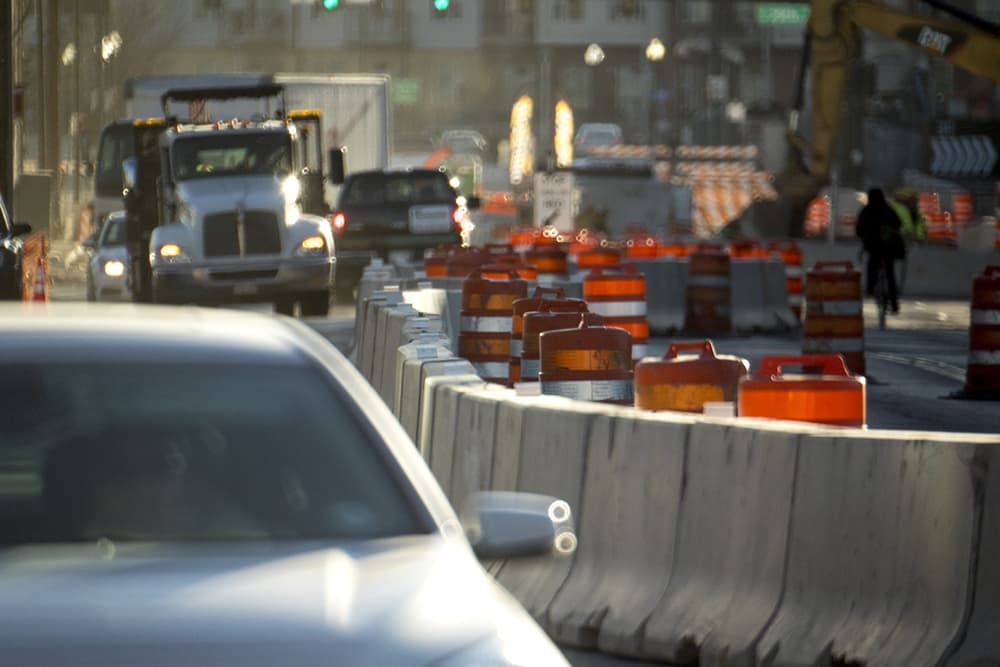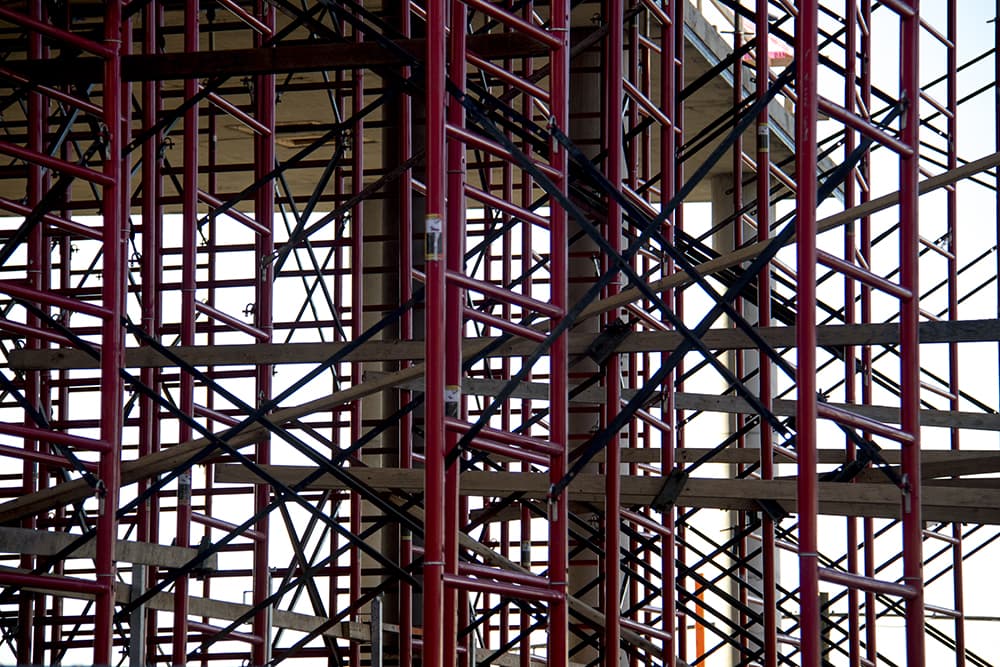
You might have noticed there's a lot of construction going on these days. And there's especially a lot of construction going on along Brighton Boulevard and in the Globeville and Elyria-Swansea neighborhoods.
Councilwoman At-large Debbie Ortega wants Denver's 2018 budget to include dedicated funding to make sure all that construction doesn't lead to road closures that trap residents in their neighborhoods or prevent workers from reaching their jobs.
"We cannot afford for some of the businesses the city has invested in to go under because we cannot ensure connectivity," Ortega said. "For the residents, they need to get to work. We need to make sure buses and emergency services can get in and out of the neighborhood. ... These services to these communities are vital, and if you've been down there, it's got limited access as it is. And then you start with I-70, National Western, and if the bond projects get funded."
(Update: Ortega says she is going to "trust in the process," after hearing that the NDCC will issue a request for information to pin down the costs and come up with a plan.) Ortega isn't requesting a budget amendment just yet. Denver's budget emerges from the Mayor's Office, and while council members have the authority to amend it, they rarely exercise it. Ortega said she wants to give the North Denver Cornerstone Collaborative, the agency overseeing all the projects in north Denver, from the Brighton Boulevard improvements to the National Western Center redevelopment, the chance to come forward with a plan and a budget.
But if the NDCC doesn't do that in the next few weeks, Ortega said she'll ask for a $300,000 line item dedicated to this "single point of contact" initiative. Council members can introduce budget amendments on Oct. 30 or Nov. 6. Council President Albus Brooks, whose District 9 includes Globeville and Elyria-Swansea, said he supports this effort.
"The NDCC, Public Works, and the National Western Center have been discussing the idea of a centralized point of contact for coordination of mobility in the GES neighborhoods and River North area," NDCC spokeswoman Leesly Leon said in an email. "The city knows that major projects, such as Brighton Boulevard reconstruction, the NWC and potential GO Bond-related efforts will have impacts on mobility, and as a city, are trying to proactively identify and create solutions.
"At this time, the city is still exploring what the point of contact would mean in terms of funding and governance, but will continue to collaborate among agencies, City Council and the community to find possible solutions to the challenges of construction."
Leon declined to answer questions about the cost estimates.
Ortega said she was originally told it would cost around $600,000 to set up a single point of contact, manage road closures and communicate with neighborhood residents and businesses. Now she's been told most of the work could get done for half that, with the communications piece being absorbed by existing staff.
Why is this so expensive? Ortega said what she's looking for isn't just a list of road closures. She wants someone actually coordinating closures so that a private developer doesn't close one street, while a road paving crew closes another and the National Western Center closes another and pretty soon no one can go anywhere. There may be times where one project needs to wait a week to ensure there's at least some access, and Ortega wants someone who can see that coming and make it happen.
That means a software system and some amount of dedicated time and attention.
"As construction projects are underway, with several more anticipated to begin and last for several years in Globeville, Elyria and Swansea neighborhoods, there is a critical need for 'central command' by the city to minimize disruption regarding access to homes, businesses and emergency services, etc.," the board of directors of Globeville Civic Partners wrote in an email to council members. The group "strongly encourages City Council and deems it incumbent upon the administration to ensure adequate funding of staff, planning, support technology, community services, etc., for coordination of street closures and detours in order to mitigate significant negative impacts on access and mobility."

Mickey Michel, owner of the Butcher Block Cafe at 38th Street and Brighton Boulevard, as well as two other locations, one in Globeville at 50th Avenue and Washington Street, said he's been in the middle of a construction for about 10 years, starting with the construction of the 38th and Blake A Line light rail station. He's pretty philosophical about the whole thing ("yelling and screaming doesn't do much"), and he's eagerly awaiting the completion of the Brighton Boulevard improvements.
"That will be huge for us," he said.
But it does have an impact.
"Most people just find a way to deal with it. It's been a challenge, but I'm very fortunate that our prices are the most reasonable in the area," Michel said. "It has hurt our carry-out business, though. ... Whenever they close the intersection, it is a challenge."
Sometimes employees are late to work because they have to take long detours.
"I'm always happy when people show up, even if they're late," he said.
One recent weekend, the intersection of 38th and Brighton was closed at the same time that the nearby underpass to Walnut Street was closed.
"That's probably what they're thinking of," Michel said of concerns about multiple road closures at the same time. "That was not good."












